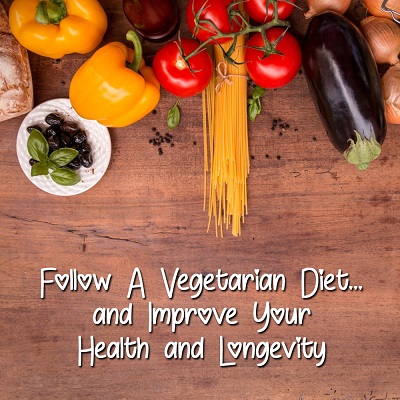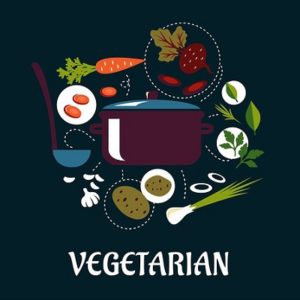Vegetarian
 Knowing that plant-based foods contain a plethora of phytochemicals, dietary fiber, magnesium, folic acid and potassium, it is easy to assume that vegetarians have to be healthy. Plus, vegetarians are far less exposed to foods that contain high amounts of cholesterol and saturated fats, compared to their meat-eating friends.
Knowing that plant-based foods contain a plethora of phytochemicals, dietary fiber, magnesium, folic acid and potassium, it is easy to assume that vegetarians have to be healthy. Plus, vegetarians are far less exposed to foods that contain high amounts of cholesterol and saturated fats, compared to their meat-eating friends.
However, why does following a vegetarian diet help promote longevity? Here are a few scientific studies that give reasons why.
Reduces Your Risk of Diseases
Heart Disease
Research has shown that there is a lower incidence of cardiac problems among the vegetarian population. A combined analysis of data from five different studies which involved 76,000 participants showed that vegetarians are 25% less likely to suffer from any type of heart disease. Continue reading
 Becoming a vegetarian is easier than you might think. Vegetarian eating is different but not difficult; it takes commitment, but it isn’t rocket science.
Becoming a vegetarian is easier than you might think. Vegetarian eating is different but not difficult; it takes commitment, but it isn’t rocket science.
First you have to distinguish what type of vegetarian you are most interested in becoming and, more importantly, why? People become vegetarians for many reasons. You may convert to vegetarianism because of religion, animal rights, and health and wellness reasons. You must define your reason first so that you know where to turn for motivation and support when you are faced with adversity.
Becoming a vegetarian means not eating meat, which includes beef, poultry, fish or even the by-products of meat like dairy or eggs. Whole foodists do all of that PLUS eat only raw foods like fruits, vegetables, seeds and nuts.
Most people make the decision to become a vegetarian because of health and wellness reasons. But Hindu and Buddhists are strict vegetarians and others practice vegetarian eating habits because they are animal activists and abhor the treatment of animals during the slaughter process. Continue reading






